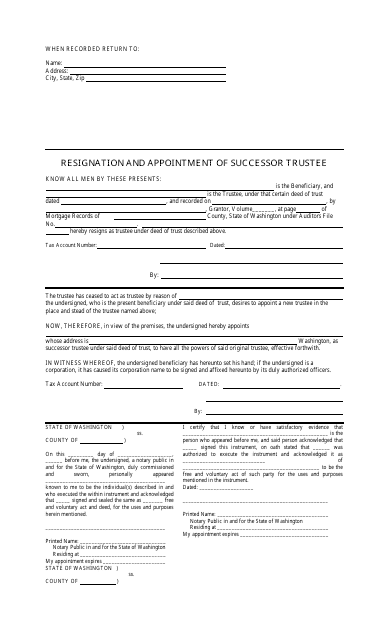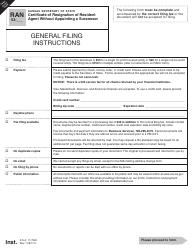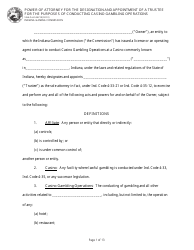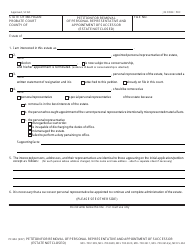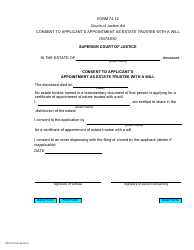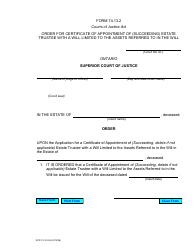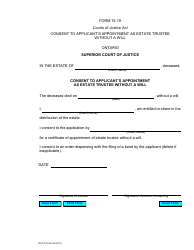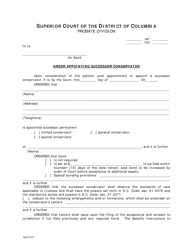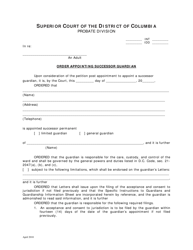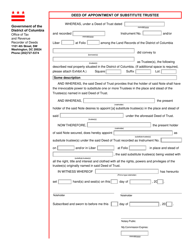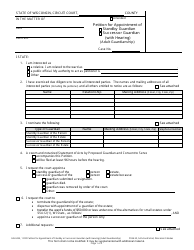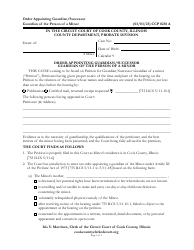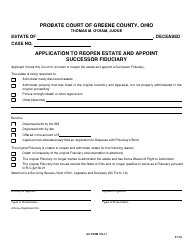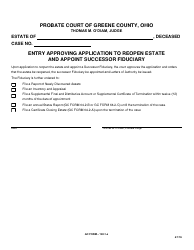Resignation and Appointment of Successor Trustee - Washington
The document "Resignation and Appointment of Successor Trustee - Washington" is used when a trustee wishes to step down from their role in managing a trust in the state of Washington. It is used to formally resign from the position and appoint a new trustee to take their place.
In Washington, the resignation and appointment of a successor trustee is typically filed by the current trustee with the relevant county clerk's office.
FAQ
Q: What is a resignation and appointment of successor trustee?
A: A resignation and appointment of successor trustee is a legal process in which a trustee steps down from their role and appoints a new trustee to take their place.
Q: Why would a trustee resign?
A: A trustee may resign for various reasons, such as personal reasons, inability to fulfill their duties, or a desire to pass the responsibility on to someone else.
Q: How does a trustee appoint a successor trustee?
A: A trustee can appoint a successor trustee by submitting a written resignation letter and naming the chosen successor trustee in the document.
Q: Is there a specific process for resignation and appointment of successor trustee in Washington?
A: Yes, Washington has its own laws and regulations regarding the resignation and appointment of successor trustees. It is advisable to consult an attorney familiar with Washington state laws for guidance.
Q: Do all trusts require a successor trustee?
A: Not necessarily. Some trusts may have designated successor trustees, while others may not. It depends on the terms of the trust document and the preferences of the trustee.
Q: What are the responsibilities of a successor trustee?
A: The responsibilities of a successor trustee typically include managing the trust assets, distributing assets to beneficiaries according to the trust document, and fulfilling all fiduciary duties.
Q: Can a successor trustee be removed or replaced?
A: Yes, a successor trustee can be removed or replaced under certain circumstances, such as if they fail to fulfill their duties or if there is a dispute among beneficiaries.
Q: Is it necessary to involve a lawyer in the resignation and appointment process?
A: While it is not always required, involving a lawyer can ensure that the process is done correctly, in compliance with the law, and to avoid potential legal issues in the future.
Q: Can a trustee resign if there are ongoing legal or financial matters related to the trust?
A: Yes, a trustee can resign even if there are ongoing legal or financial matters related to the trust. However, the trustee should work with legal professionals to ensure a smooth transition and proper handling of the matters.
Q: What happens if a trustee resigns without appointing a successor trustee?
A: If a trustee resigns without appointing a successor trustee, it may lead to complications in the management and administration of the trust. The court may need to intervene to appoint a new trustee in such cases.
